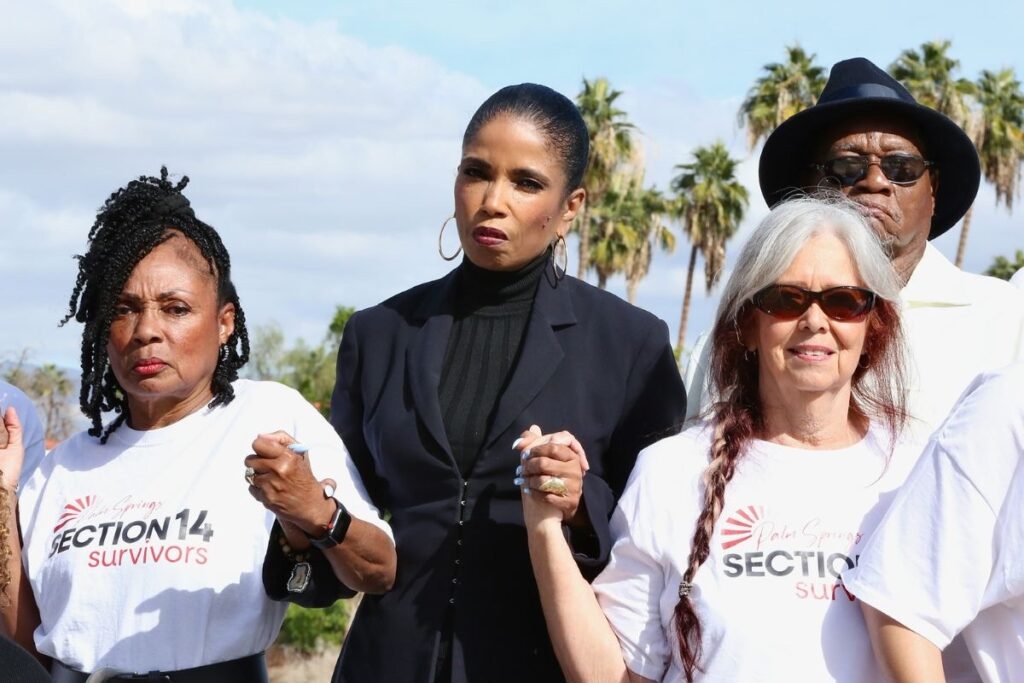California Black Media Network
The Southern California city of Palm Springs approved a $27 million reparations compensation package for Black and Latino families who were displaced from their homes in the 1960s.
The city council voted on the deal Thursday, following an announcement last week. The move, which has garnered support from Sen. Laphonza Butler (D-Calif.), comes as part of a broader push for reparations in California.
Areva Martin acted as lead counsel for the Palm Springs group and represented the impacted families.
“We are making history in Palm Springs,” said Martin. “This agreement demonstrates that it’s never too late to acknowledge past wrongs and take meaningful steps toward justice.”
The reparations agreement targets families from Section 14, a predominantly Black and Latino neighborhood demolished in the 1960s to make way for commercial development. Hundreds of families lost their homes in the process, and descendants have been advocating for reparations since the city issued an official apology in 2021. Despite the city’s apology, many were concerned that no payments had been made, prompting action from Butler earlier this year.
The deal includes $5.9 million in direct compensation for around 300 survivors and their descendants, well below the $2 billion initially requested. In addition to cash payments, the agreement includes $10 million for a first-time homebuyer assistance program and $10 million for a community land trust aimed at affordable housing. Other provisions include $1 million for diversity and inclusion initiatives, a renamed park, and a monument to honor the displaced families.
Palm Springs Mayor Jeffrey Bernstein called the settlement a fair and just resolution, expressing hope that the agreement would set a national precedent for reparations. While this follows a similar reparations program in Evanston, Illinois, California’s statewide efforts have faced resistance, especially following Newsom’s rejection of a state-level reparations proposal earlier this year.
The Palm Springs settlement is seen as a historic step toward addressing racial injustice, though challenges to similar programs continue elsewhere in the U.S.
